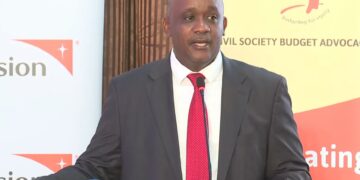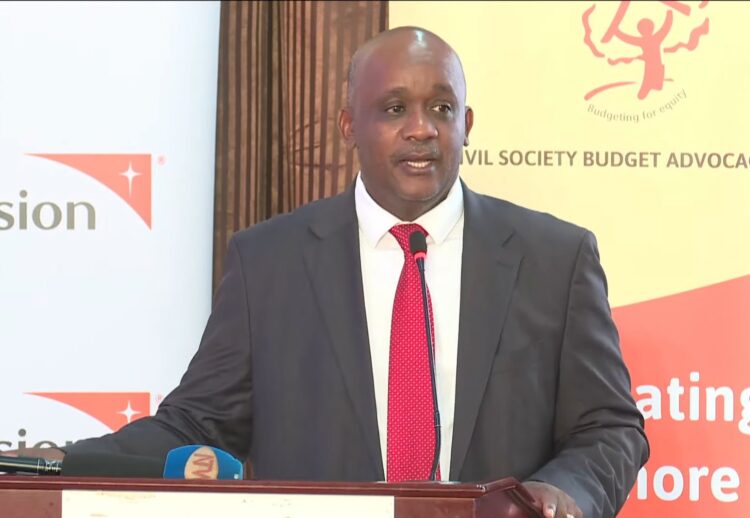By Leonard Kamugisha Akida,
KAMPALA
Civil Society Organizations (CSOs) have praised the government for implementing key reforms in the proposed national budget for the 2025/26 financial year.
The proposed budget has been reduced by Shs 14.695 trillion, down from Shs 72.137 trillion in the current FY 2024/25 to Shs 57.441 trillion, as outlined in the national budget framework paper resource envelope for FY 2025/26.
Julius Mukunda, the Executive Director of the Civil Society Budget Advocacy Group (CSBAG), acknowledged the government’s efforts to improve revenue generation and reduce reliance on external funding.
“We are seeing the government trying so hard. One of the key aspects is enhancing domestic revenue generation. We are projected to finance about 8% of our budget using internal revenue, which is a significant step forward,” Mukunda stated.
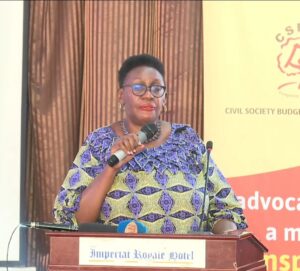
He emphasized that this milestone reflects a growing realization that the country must address key areas of financial sustainability.
According to the budget framework paper, the proposed reforms in the budget include; Reducing domestic borrowing by Shs 4 trillion, down from Shs 8 trillion. minimizing reliance on external financing, holding back the creation of new administrative units to cut costs among others.
Despite these positive strides, Mukunda pointed out that the proposed budget underfunds key priority sectors such as Tourism, agriculture, mineral sector and ICT. He stressed the need for urgent attention to these sectors, warning that neglecting them could slow economic progress.
Additionally, CSOs have raised concerns about wasteful government expenditures, including spending on special meals (Shs298.525b), beddings and footwears for top government officials (Shs132.251b) and holding workshops and meetings (Shs237.021b) to mention but a few which they believe compromise effective budget planning.
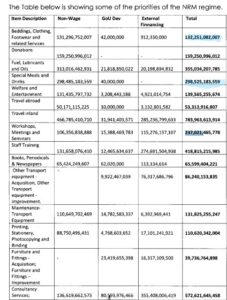
“Citizens should raise concerns about issues that undermine the planning and budgeting process, such as recurring supplementary budgets,” Mukunda urged.
Representing the Permanent Secretary of the Ministry of Finance, Planning, and Economic Development (MoFPED), Ramathan Ggoobi, David Okwii, a senior economist at the ministry, said the budget is set to be financed through a combination of domestic and external resources.
“The budget strategy for FY2025/26 will be financed using our domestic resources as well as external resources,” Okwii said. “To reduce on external financing, government shall strengthen the implementation mechanisms of our domestic revenue mobilization standards,” he added.
He outlined the government’s commitment to the 10-fold growth strategy. This strategy aims to drive economic growth by prioritizing Agro-industrialization and Trade Monetization Strategy (ATMS).
“The priorities include ensuring access to affordable credit across the spectrum. Anyone involved in agro-industrialization whether in production, value addition, or exports—should have access to affordable, long-term credit. Short-term credit is often expensive and challenging to sustain,” Okwii explained.
With these reforms, the government aims to strengthen the economy, reduce dependency on external funding, and promote sustainable development. However, civil society remains vigilant, urging authorities to address funding gaps in critical sectors and curb unnecessary expenditures to ensure efficient resource allocation.
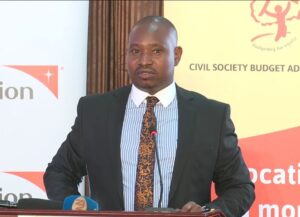
However, the Chairperson of Kampala City Traders Association (KACITA), Thadeus Musoke Nagenda accuses the government of neglecting the private sector in the formulation of strategies which he says affects the implementation exercise.
“When these strategies are formulated, they stay in those offices and us in the private sector are not engaged which makes it difficult for us to align to them,” he said.
Musoke called for knowledge sharing with the private sector in order to foster implementation and monitoring the performance of these strategies.
